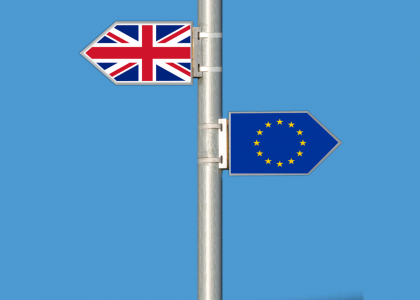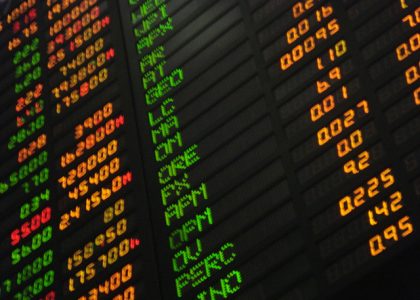To get an understanding of his success and what it means for democratic representation ResearchGate spoke to John Street, author of Celebrity Politicians: popular Culture and Political Representation
Researchgate: Would you consider Donald Trump to be a celebrity politician? If so, what does that mean?
John Street: When I first wrote about celebrity politicians, I suggested that there were only two kinds. There were the stars of film and music who acted as politicians in their support for humanitarian causes , and sometimes- as with Arnold Schwarzenegger- in their pursuit of political office. And then there were the conventional politicians who used celebrities, or the style and platform of celebrities, to win votes. I now realize there are many other types of celebrity politicians. There are those in authoritarian regimes for whom elections are largely irrelevant, and there are those who derive their celebrity status by means other than show business. Donald Trump fits into this category. He is a celebrity in the sense that he is a businessman with a media profile, but that profile isn’t just an indication of his business acumen, but of him as a “character” or “personality”. To this extent, he is a celebrity politician, and as such he has an opportunity to use his fame for political ends.
RG: What are the perceived dangers of celebrity politicians, like Donald Trump to political representation?
JS: The dangers are those of populism (although populism is not necessarily dangerous). Celebrity politicians- of the Bono or Bob Geldof or Angelina Jolie type- are not accountable for what they do and say. They answer to no party or electorate. This is one danger. Another is that they may lack expertise, and so they can offer inadequate or misguided solutions to complex problems. And finally, celebrity politicians have mixed motives: they want to solve a problem, but they also want to be successful as performers. They may therefore shy away from difficult problems/solutions, and they may put career before cause. These dangers don’t apply in every case to Trump, at least while he remains linked (and accountable) to the GOP. But his wealth makes him much less dependent on the party.
RG: Trump is certainly savvy to the aesthetics and performance of politics. But how far can this take him without serious policies? Can performance completely supplement traditional political substance?
JS: Those who got Ronald Reagan elected talk of how they created his campaign as a form of “entertainment”. It is possible, especially in a world in which politics has been “mediatized”, for appearance and performance to get you a very long way. The rise of populist politics in France, Italy, the US and the UK is evidence of this. But this success is not just a matter of appearance; or rather, it is an appearance that chimes with the political engagement and disillusionment that is also characteristic of these countries. Someone who tells it “like it is” or tells people “what they want to hear” is going to play well.
RG: The idea that “Fox News Created the Trump Monster” and as you note in your article “either politicians learn the skills of the medium or those already skilled in it (the celebrity) come to dominate it” How much of Donald Trump’s success is merely a product of the media environment?
JS: Live Aid in 1985, and everything that came after it, depended on the willingness of media institutions to give airtime (and more) to them. Media agendas, and the political and regulatory regime that shapes them, are key to the rise of the celebrity politician. Media are, to a large extent, the authors of celebrity- they select the candidates and provide the aura of popularity. Success as a celebrity politician depends on understanding how to communicate effectively- how to perform- within the conventions and genres of entertainment.
RG: How much of Trump’s popularity is down to the fact that he can “claim to champion the interests of the unrepresented, all those who don’t identify with politicians”?
JS: “Popularity” is a tricky idea. In the UK, it was announced recently that more young people than ever had taken math exams. The BBC interpreted this as math being “popular”. I doubt it! The same may be true of Trump. People might want him to get the nomination for any number of reasons, only some of which may be a measure of his “popularity”. I don’t think we know enough yet about the source of his support (and it may evaporate as fast as it rose- there are one-hit wonders in politics as in pop).
RG: Are there any benefits to democratic representation and politics more generally because of candidates like Trump?
JS: Edmund Burke, the eighteenth century Anglo-Irish MP and writer, would have said he did, but it is not clear that Trump is a Burkean, or indeed what theory of politics he subscribes to. The cliché about campaigning in poetry and governing in prose tends to mean that celebrity politicians may be good at getting themselves elected, but not so good at making the hard choices that politics demands.
RG: You highlight the idea of voting based on appearance. If Trump was to win what aspects of his performance or appearance would you credit with his victory?
JS: Trump seems to have developed a (media) personality that convinces people (albeit temporarily) that he knows how to get things done, and that he can cut through the ties that bind traditional politics. His persona owes something to those in the UK- like Simon Cowell, Jeremy Clarkson and Alan Sugar. These people are not especially likeable, but they are successful, and they conform to a particular (media) stereotype of “leadership”.
This post originally featured on the ResearchGate blog
Image Credit: Flickr
John Street is Professor of Politics at the University of East Anglia





